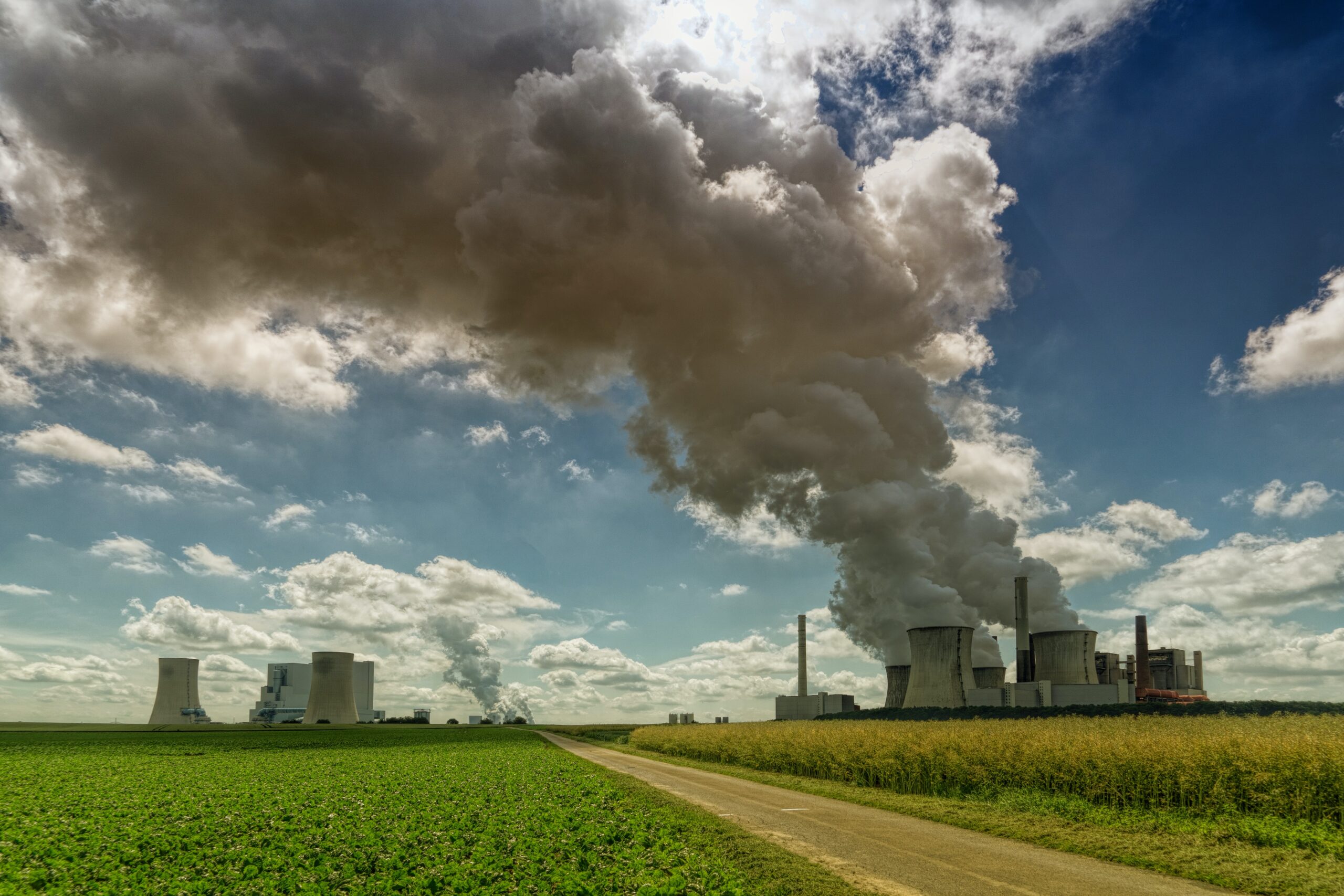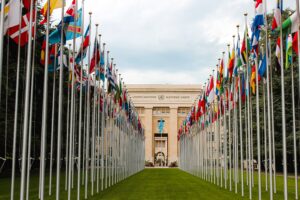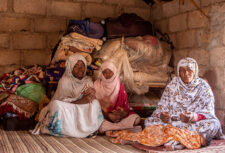In November the UK will host the COP26 UN climate change summit. Anti-Slavery International’s climate change and modern slavery advisor Fran Witt asks what world leaders could do to tackle the related issues of climate change and modern slavery.

You might wonder what climate breakdown and human rights abuses like modern slavery have in common. In fact, there’s a clear connection between the causes and effects of climate change, and modern slavery. In April 2021 we published From A Vicious to a Virtuous Circle, a landmark report on climate change and modern slavery, which set out the fact that the world cannot properly tackle climate change without including efforts to end modern slavery.
Low-income countries suffer some of the most severe climate impacts, have the least capacity to adapt, and find it hardest to recover from the loss and damage caused by climate change – including devastating floods, droughts, heatwaves, cyclones, and rising sea levels. In many cases these conditions lead to people being forced to migrate and leave lands or jobs that can no longer provide them with a living. In an increasing number of cases this leaves them open to exploitation, trafficking and modern slavery.
Arifur Rahman, from our partners OKUP, a social development organisation in Chattogram, Bangladesh, summed it up by saying “without a doubt, each time our country battles through an environmental disaster, we see a subsequent rise in cases of slavery and human trafficking”.
When the leaders of the world’s wealthiest nations met at the G7 summit in Cornwall in June 2021, there was a disappointing lack of progress on low carbon development, financing for adaptation activities and for the loss and damage being experienced from climate breakdown. The COP26 UN climate change summit opens the discussion to a broader community of nations, and offers a major chance to protect people and planet. But any action needs to happen fast, and to be participatory and fair. This will help power sustainable, more equal, and resilient societies.
So what needs to happen?
 The world has already experienced over 1°C of warming, and is on course to reach a devastating 3°C increase in average temperatures. It’s vitally important that COP26 commits to limit global temperature rise to 1.5°C. This must be achieved by a rapid transition from fossil fuels, a global commitment to reducing greenhouse gas emissions to 45% below their 2010 levels by 2030 and a commitment to reaching net zero emissions by 2050, as called for by the Intergovernmental Panel on Climate Change. This transition needs to be fair, and must respect everyone’s fundamental rights.
The world has already experienced over 1°C of warming, and is on course to reach a devastating 3°C increase in average temperatures. It’s vitally important that COP26 commits to limit global temperature rise to 1.5°C. This must be achieved by a rapid transition from fossil fuels, a global commitment to reducing greenhouse gas emissions to 45% below their 2010 levels by 2030 and a commitment to reaching net zero emissions by 2050, as called for by the Intergovernmental Panel on Climate Change. This transition needs to be fair, and must respect everyone’s fundamental rights.- The effects of climate breakdown are felt most acutely in developing countries, where people are increasingly vulnerable to modern slavery. But support for developing countries to adapt to climate change has stagnated at only 20% of overall climate finance. This is not nearly enough. COP26 must re-commit to providing US$100 billion annually to support climate action in developing countries and work towards a financial goal that considers the needs and aspirations of developing countries.
- Equally, COP26 needs to allocate 50% of climate finance to adaptation. This supports countries to adapt to the effects of climate change, and helps communities to build resilience to counter its devastating consequences. Any investment must meet the needs and rights of women, children, and other groups, including people who are vulnerable to climate-induced migration, trafficking and modern slavery.
- Finance is also needed to help people whose lives and way of life have been destroyed by climate change such as sea level rise or desertification. Governments really need to unlock resources to provide support and alternative livelihoods for communities whose livelihood is no longer viable.
- Positive action on climate change must be built into plans for economic recovery from the COVID-19 pandemic; and governments and industry must make sure that the expansion of low-carbon energy and infrastructure does not harm people or planet.
- As well as providing support to workers in traditional carbon intensive industries, the renewable energy industry must commit to making sure they do not use forced labour or modern slavery in their operations (as is sadly the case with the solar industry’s links to human rights abuses in the Uyghur Region).
- Overall, and to keep this progress on track, we need to see a UN special rapporteur on human rights and climate change mandated to investigate, monitor and recommend solutions to tackle the dual threat of slavery and climate change.
Conclusion
The COP26 UN climate change summit could help the world to address the related problems of climate change and modern slavery. World leaders must deliver on a vision of a global, just and transformational recovery that integrates, defends and expands human rights and reduces inequality, by prioritising the needs of the people most affected by climate change. An integrated social, economic, and environmental response is needed that builds the resilience of vulnerable populations to the linked global challenges of climate change and modern slavery.
What you can do
Read our joint statement with the Modern Slavery Strategy Implementation Group.
Support our campaign to end modern slavery by donating to the cause, or becoming a member.
 The world has already experienced over 1°C of warming, and is on course to reach a devastating 3°C increase in average temperatures. It’s vitally important that COP26 commits to limit global temperature rise to 1.5°C. This must be achieved by a rapid transition from fossil fuels, a global commitment to reducing greenhouse gas emissions to 45% below their 2010 levels by 2030 and a commitment to reaching net zero emissions by 2050, as called for by the
The world has already experienced over 1°C of warming, and is on course to reach a devastating 3°C increase in average temperatures. It’s vitally important that COP26 commits to limit global temperature rise to 1.5°C. This must be achieved by a rapid transition from fossil fuels, a global commitment to reducing greenhouse gas emissions to 45% below their 2010 levels by 2030 and a commitment to reaching net zero emissions by 2050, as called for by the 



